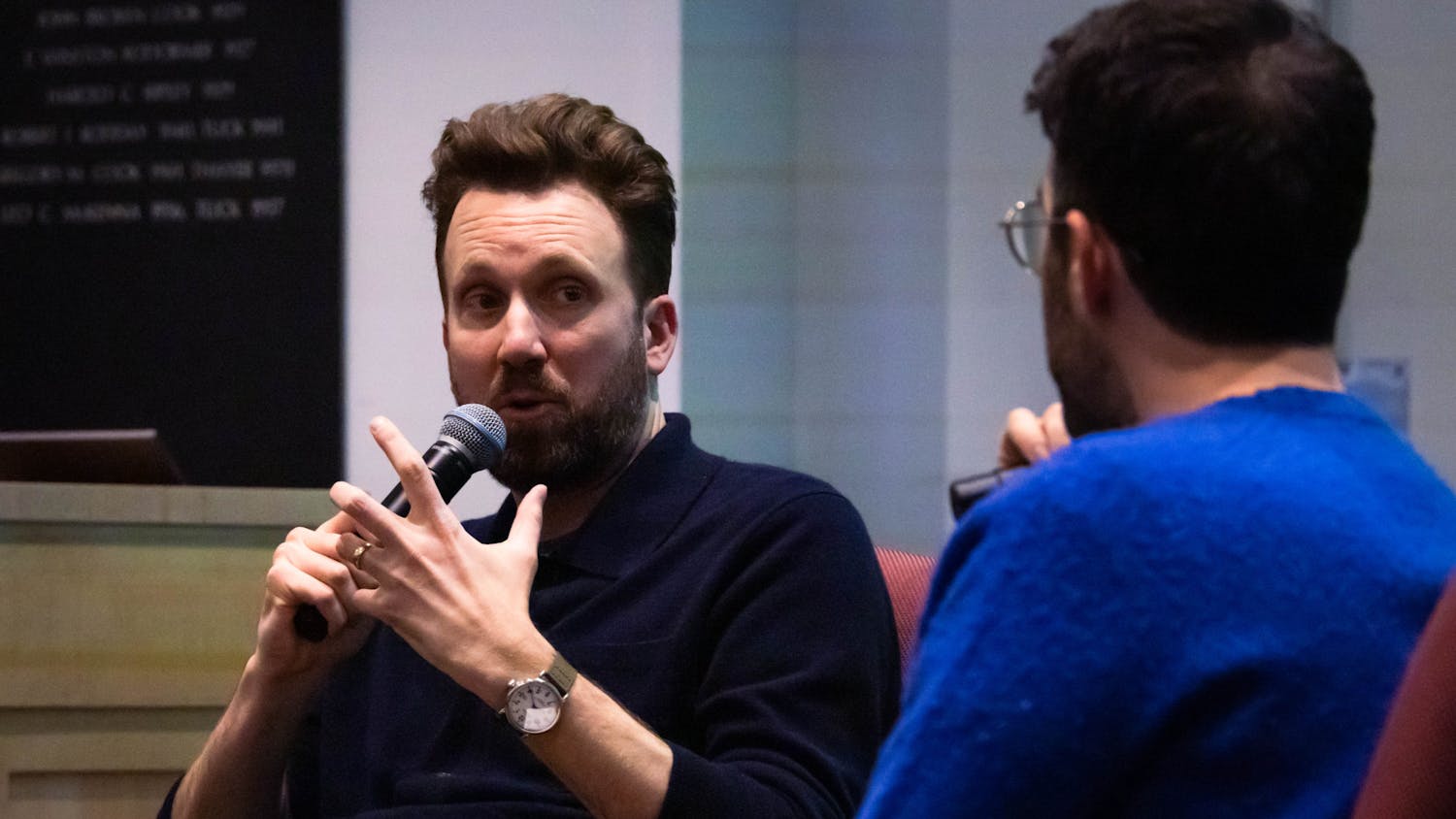Reading Sally Rooney is like finally being compensated for being a young woman. Her first two novels, “Conversations with Friends” and “Normal People,” catalog the romantic and intellectual obsessions of her college-aged subjects with rare tenderness and precision. She takes seriously the kind of stories that are often deemed frivolous merely because their subject matter (girls) is not seen as a viable cultural subset for which to make art, manifested in the phrase “chick lit.” Art which portrays female perspectives — especially young, contemporary female perspectives — is often viewed as separate and illegitimate. Rooney is the novelist I go to when I want to be seen and validated, so waiting for her highly anticipated third novel was like waiting for an old friend to return home.
I waited in vain. “Beautiful World, Where Are You?”, which was published early this month, failed to live up to the lucidity of Rooney’s earlier novels. While her other protagonists sincerely attempt love and politics, Rooney’s new characters trivialize both.
The book uses a combination of voyeuristic third-person narration and interspersed emails to take readers through the romantic lives of former college roommates Alice and Eileen, who are now approaching 30. The structure is awkward and cold, describing each character from a significant distance, hinting at, but not revealing, truth. Rooney writes sentences like“Alice seemed to fall asleep instantly” and “She seemed to have become slightly nervous.” The only time a reader is allowed to enter the characters’ minds is through their emails — which, besides being mediated by the distance of the imagined digital world, are overly verbose and philosophical; several pages are used to describe the collapse of Mesopotamia in order to arrive at the point that, according to Eileen, “human civilization is a lie.”
The Rooney characters I fell in love with — earnest and radical young women — talk about revolution while enmeshing themselves in unhealthy relationship patterns, honestly portraying what it is to be well-educated and sincere about structural geopolitical issues and simultaneously (incongruently, perhaps, to anyone not in Gen Z) stuck in sophomoric debates on whether or not one should text first. Yes, there is irony to Rooney’s nearly homogenous character set of well-off European white women debating about socialism while using their parents’ credit cards to buy coffee with maddeningly opaque romantic partners. However, her earlier books acknowledge their lives are inherently ironic without delegitimizing their experience.
Alice and Eileen are more self-aware than Rooney’s college-aged characters, but rather than letting their knowledge of privilege motivate them to achieve a more just world, they give up. “Beautiful World” is populated with “good white liberals,” who are essentially college educated people armed with both a tongue-in-cheek awareness of their privilege and a resistance to taking action. Alice states, in the middle of an email meditation on the suffering of others, that she doesn’t know what action to take and that’s okay because, as she says, “In my defense I’m very tired and I don’t have any good ideas.” I much prefer Frances and Bobbi’s ignorant attempts at problem solving seen in “Conversations with Friends” to the political defeatism of “Beautiful World.” And, beyond personal preference for effort over acquiescence, Rooney’s blasé and straightforward prose dangerously posits stasis as intellectually superior. It reads like Rooney is trying to issue a corrective for her past characters’ beliefs, and misguidedly so.
Not only does it seem like Rooney is overwriting the characters of her earlier works, but it also appears that she is attempting to legitimize herself as an author. Alice is transparently a stand-in for Rooney herself — a young, successful writer whose works of romantic fiction have been both acclaimed and critiqued for their attempts at lefitist politics. The emails read as autofiction, wherein Rooney is defending her writing’s fascination with romantic relationships.
“In that sense,” reads one email in the book, “there is nothing bigger than what you so derisively call ‘breaking up or staying together’(!), because at the end of our lives, when there’s nothing left in front of us, it is still the only thing we want to talk about.”
It feels like Rooney uses the interspersed emails to defend her decision to write a simple love story. Eileen and Simon, her childhood crush, fall in love after an unnecessary complicated will-they-won’t-they. Alice and Felix — a man to whom no virtues are attributed — fall in love for seemingly no reason. In fact, by running interference on interpretations of her novel and stating so plainly that love is the only thing that counts, the actual stories suffer enough to become too hollow to matter at all.
Rooney relies on digital cliché, like Eileen refusing to double text or Simon nervously refreshing a social media page, to show distance between her characters. The fake profundity, and sheer volume, of references to social media evokes a much older generation’s snobbishness on the ruin of civilization via iPhone and misses an opportunity to explore how very real emotions are given dimensionality — as opposed to nullification — through digital platforms.
I had, in the midst of being disappointed, attempted to convince myself that the novel was ironic. I wanted to believe in the sincerity of Rooney and her work. However, the novel closed out with two happy relationships, undeveloped beyond a temporal chapter leap to the COVID-19 pandemic period, and the statement that loving each other well is a way of proving that “the most ordinary thing about human beings is not violence or greed but love and care.” Such a conclusion would be beautiful if it weren’t coming at the end of a story deliberately dismissive of systemic problems.
While I deeply believe in the legitimacy of art exploring relationships, the combined sanctimonious preaching that love is the only thing that matters and that true political change is impossible only serves to justify selfishness as inevitable. Rooney’s new novel is not just uninspired writing, it is dangerous. “Beautiful World” trivializes the importance of politics by offering romantic obsession as a morally legitimate substitute — when an intersection of both love and genuinely radical politics would make for a truer novel.
Rating: ★☆☆☆☆




